You must have solved the integral of log of cosine
I = ∫ 0 π / 2 x 2 lo g ( sec ( x ) ) d x
If the value of I can be represented as = A π ζ ( B ) + E π C lo g D
Find A B C D E + 1
Details and Assumptions
1) A , B , C , D , E are positive integers. Also A B C D E means product of the integers A , B , C , D , E . Also base of l o g is e
2)Remember D is not divisible by a perfect power(power >1 ) of any integer.
3) ζ ( s ) = n = 1 ∑ ∞ n s 1 .
The answer is 1729.
This section requires Javascript.
You are seeing this because something didn't load right. We suggest you, (a) try
refreshing the page, (b) enabling javascript if it is disabled on your browser and,
finally, (c)
loading the
non-javascript version of this page
. We're sorry about the hassle.
2 solutions
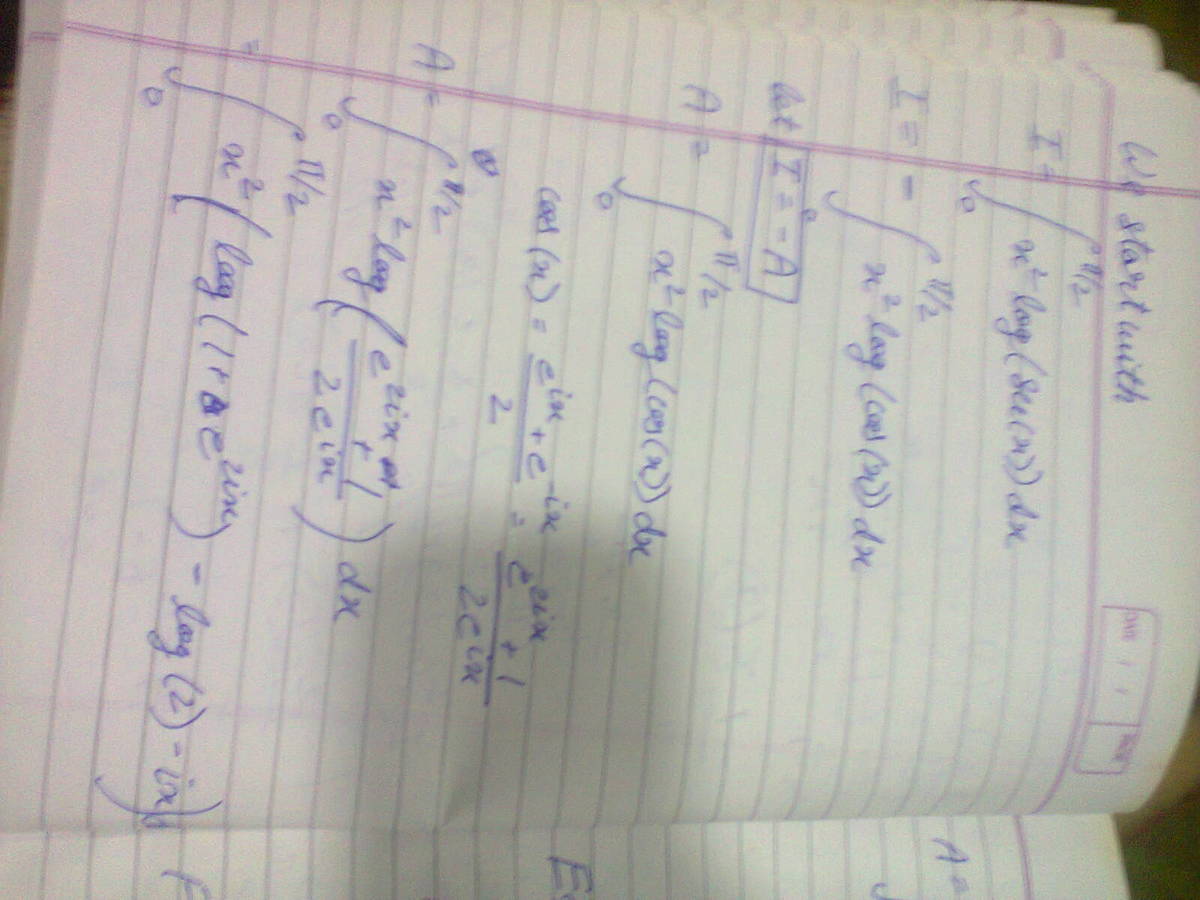
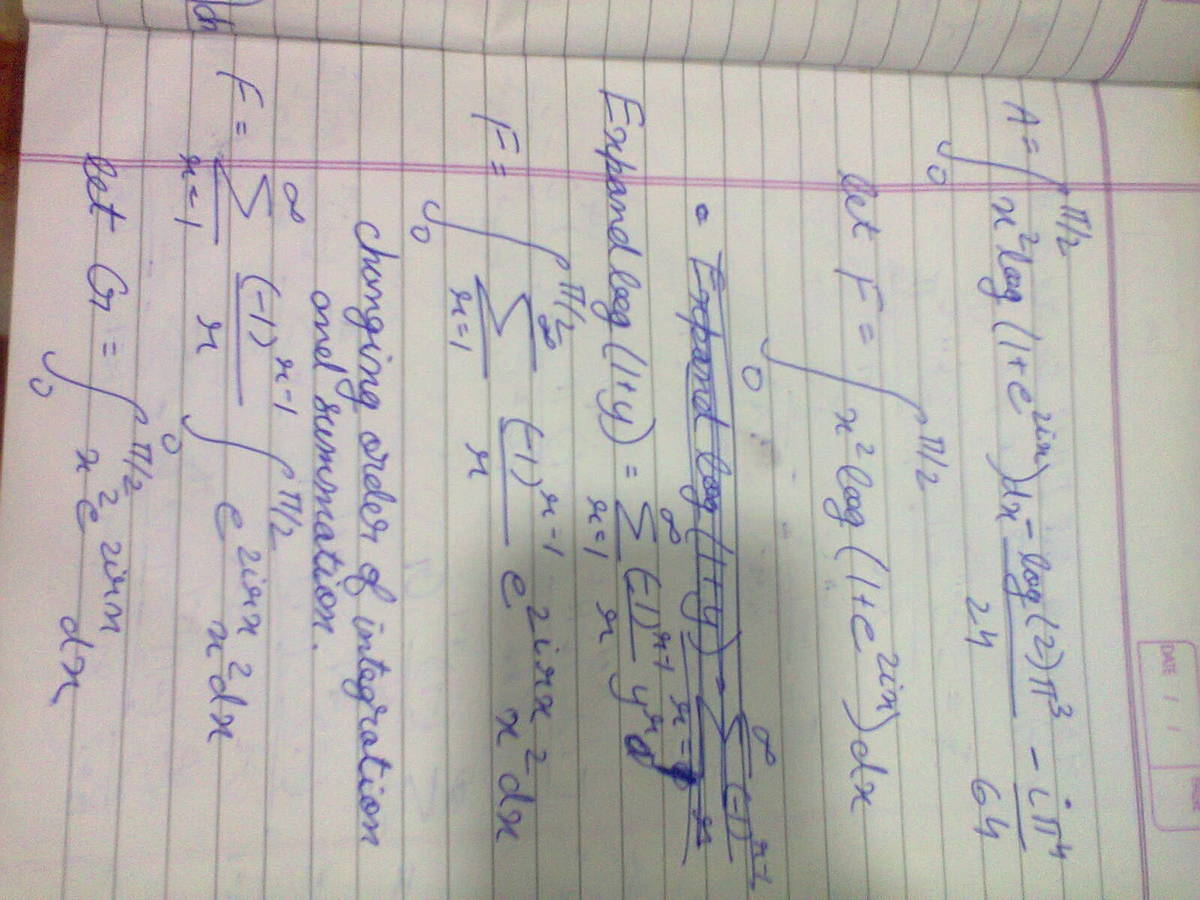
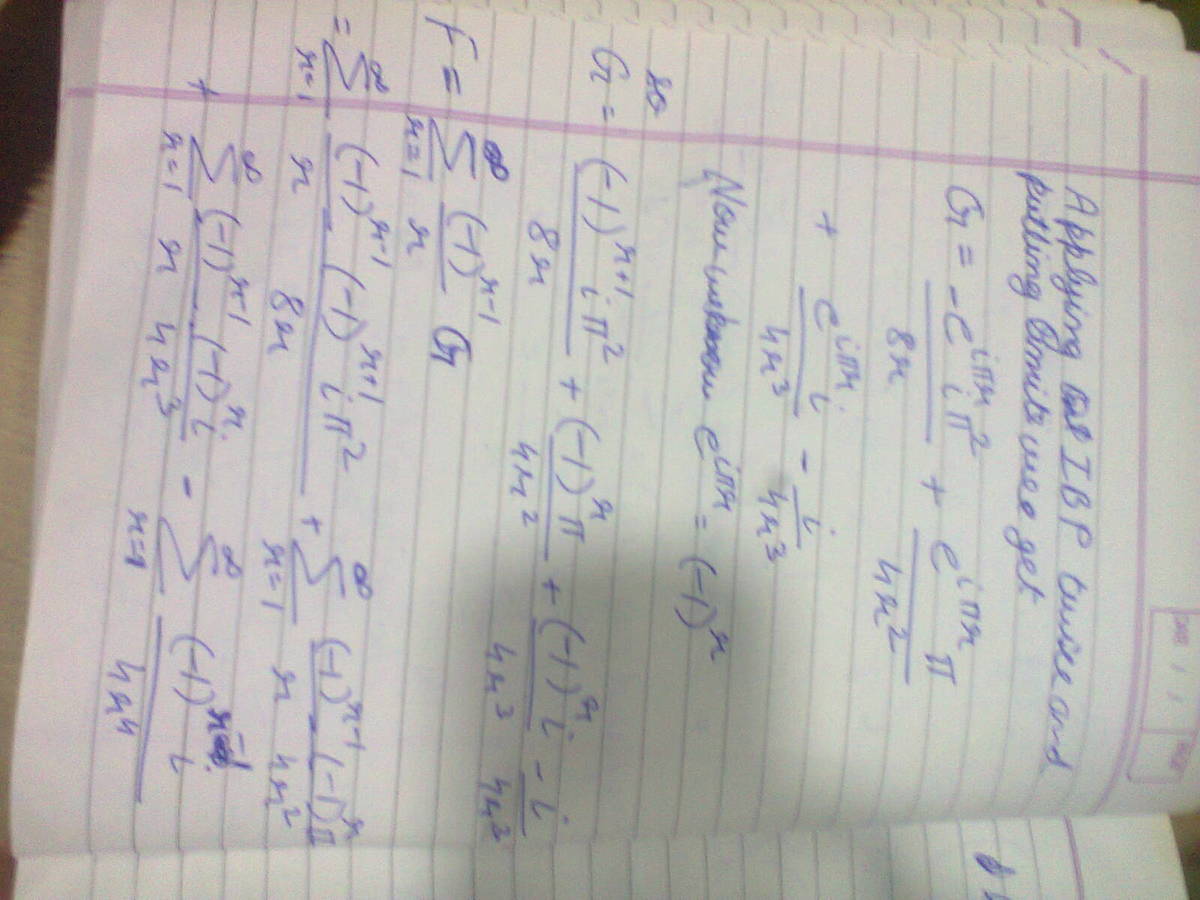
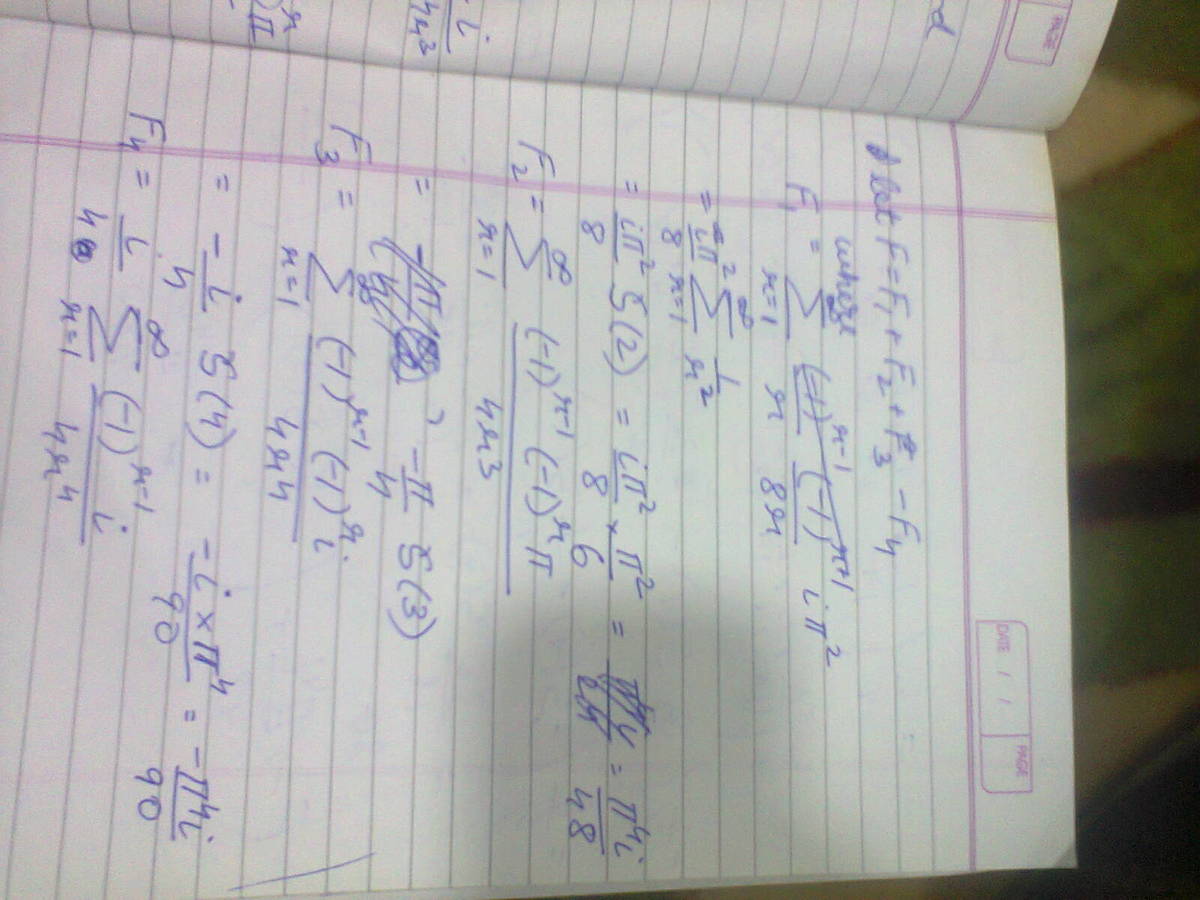
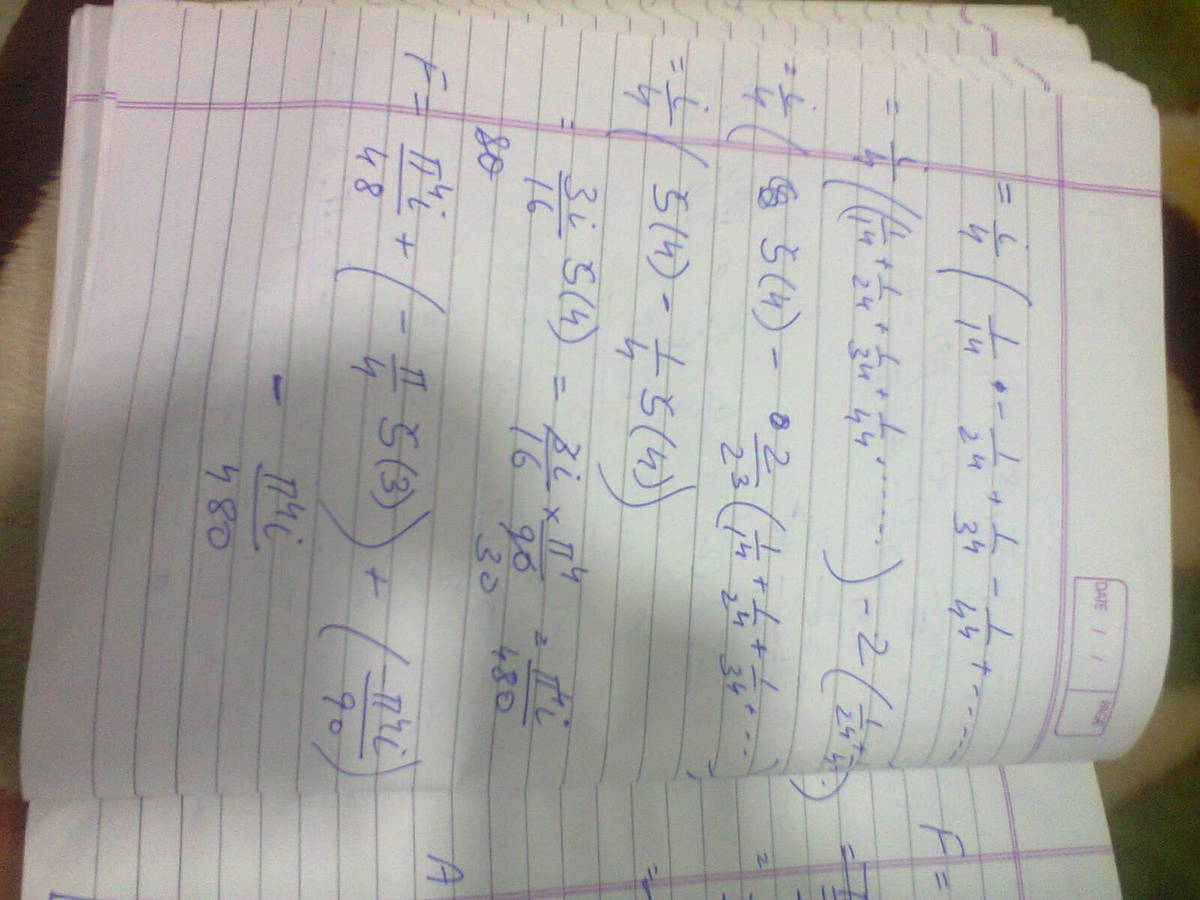
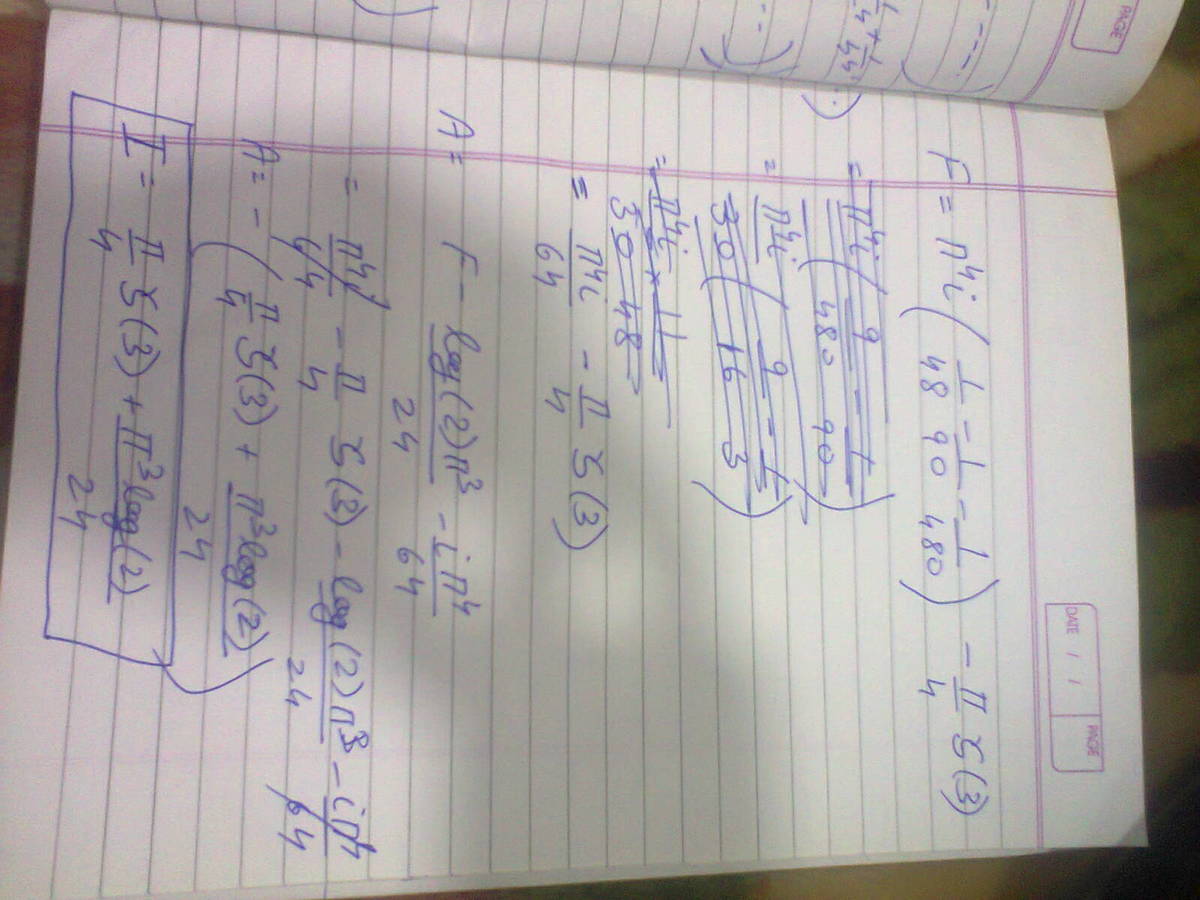
Wow rajdeep you were so young when you knew all these things.....Good job...The main stake of the problem was the use of l n s i n x = − σ C o s 2 n x / n − l n 2 . n varying from 1 − i n f i n i t e .And next integration by multiplying x 2 and changing the order of summation and integration.My method was short as I used this and a prev proven ∫ x l n s i n x = 7 / 1 6 ζ ( 3 ) − π 3 / 8 l n 2 with the limits from 0 − π / 2 .
The answer is :
= 4 π ζ ( 3 ) + 2 4 π 3 lo g 2
Can you explain how one can arrive at this answer?
Log in to reply
My method to this problem is just too long and I am too lazy(sorry to say like this) to post a solution to this problem. Also I posted the answer for people to confirm it who got it wrong in their attempts.
I will hopefully write it in 2 - 3 hours.
I have Posted the solutions in Images. Kindly edit it into Latex.
Please @Calvin Lin and sorry for @mentioning you.
Log in to reply
You have used essentially same approach as mine.
Log in to reply
@Ronak Agarwal – Are you aware of any other ?
@Ronak Agarwal – Check This Out ! here